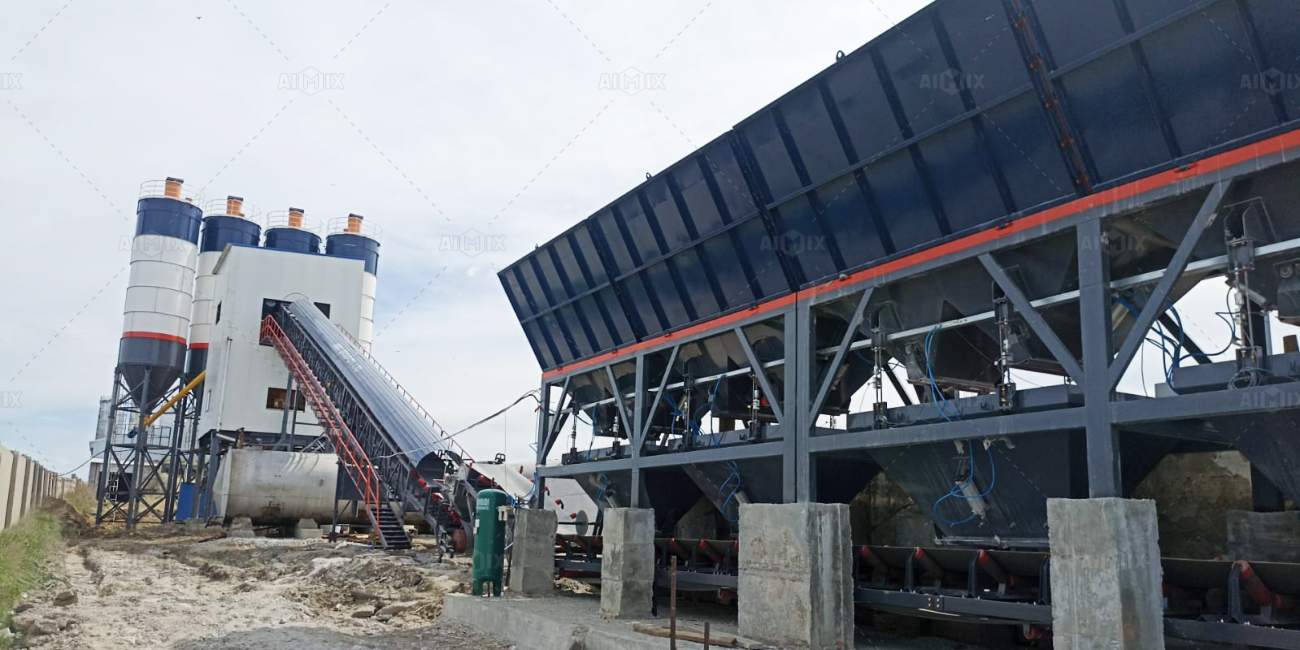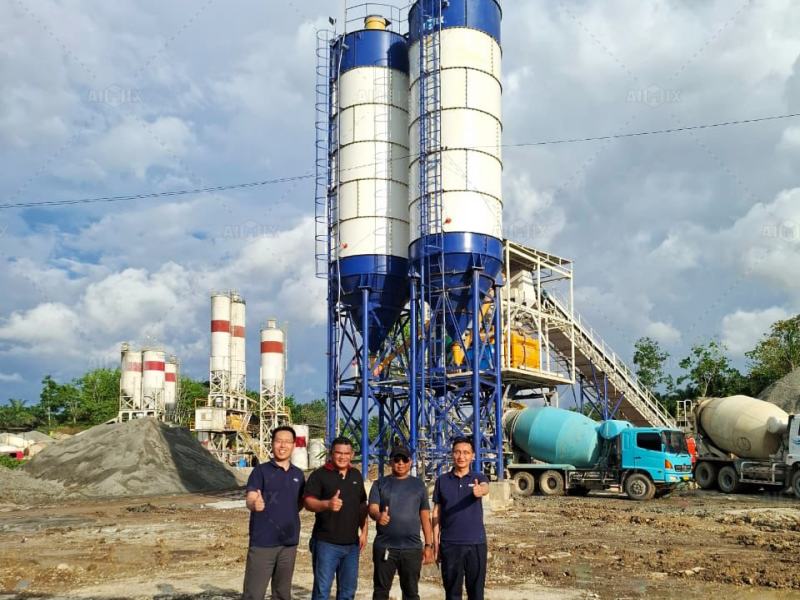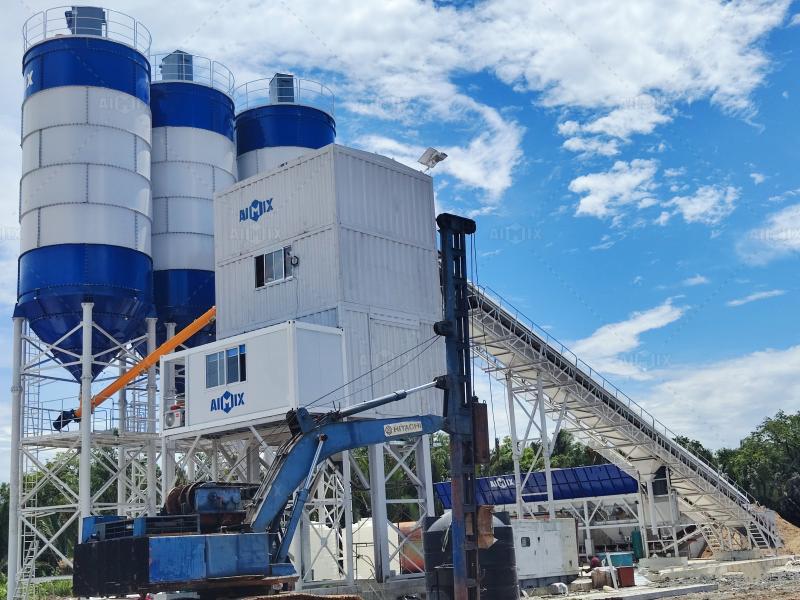In today’s construction landscape, efficiency, consistency, and cost optimization are no longer optional—they are essential. One of the most profound changes driving this transformation is the adoption of automation within concrete production. Concrete batching plant suppliers worldwide are spearheading this shift, delivering advanced technologies that are reshaping how concrete is mixed, monitored, and delivered to job sites. Automation is not only raising productivity standards but also changing the economics of the concrete batching plant business in profound ways.

The Growing Role of Automation in Concrete Production
Traditionally, batching concrete was a labor-intensive process requiring constant manual oversight to manage the weighing, mixing, and discharging of materials. Human error could often lead to inconsistent mixes, wasted raw materials, and delays. Today, automation is changing this paradigm.
Modern suppliers integrate Programmable Logic Controllers (PLCs), cloud-based systems, and AI-powered sensors into their batching plants. These systems automate core functions such as raw material weighing, water proportioning, admixture dosing, and even predictive maintenance. This precision ensures that every batch meets exact specifications while reducing waste.
For contractors and investors looking for a concrete batching plant for sale, automation is now a key deciding factor. Plants equipped with advanced controls not only produce higher-quality concrete but also deliver long-term savings in operating costs.
Reducing Concrete Plant Cost Through Automation
One of the most critical concerns for buyers is the concrete plant cost. While fully automated plants may have a higher upfront price compared to semi-automatic or manual units, suppliers emphasize the significant cost savings achieved over time.
Here’s how automation reduces lifecycle costs:
-
Minimized Material Waste – Automated weighing systems ensure the precise use of cement, sand, and aggregates, lowering material expenses.
-
Energy Efficiency – Intelligent power management reduces unnecessary energy consumption.
-
Labor Optimization – With fewer operators needed, companies save on wages and training.
-
Predictive Maintenance – Automated monitoring systems can detect issues early, reducing downtime and repair costs.
For businesses running multiple construction projects, these savings quickly outweigh the higher purchase price of advanced plants. Thus, automation becomes a strategic investment rather than an expense.

Strengthening the Concrete Batching Plant Business
Automation is also reshaping the concrete batching plant business model. Companies that once struggled with inconsistent production now enjoy standardized mixes, enhancing their reputation in competitive markets. Suppliers are enabling firms to meet diverse customer requirements—from high-strength concrete for bridges to specialized mixes for precast applications—without significant delays.
Moreover, automated plants allow businesses to scale up quickly. With recipe storage and one-touch changeovers, operators can switch between different grades of concrete seamlessly. This flexibility positions batching plant owners to serve multiple sectors, including residential housing, infrastructure, and commercial developments.
Automation also opens the door for small and mid-sized companies to compete effectively. By reducing reliance on large labor teams and minimizing errors, even new entrants into the market can deliver high-quality results that rival established players.
Supplier Innovations Driving Change
Concrete batching plant suppliers are at the forefront of innovation. Their solutions go beyond just automation of mixing. For instance:
-
Remote Monitoring: Some suppliers provide mobile apps and cloud dashboards, allowing operators to oversee plant performance from anywhere.
-
Data Analytics: Detailed production reports help businesses analyze trends, optimize mix designs, and cut costs.
-
Eco-Friendly Technologies: Automated systems support the use of recycled aggregates and alternative binders, aligning with sustainability goals.
These innovations not only improve profitability but also align businesses with the broader shift toward smart construction practices.

Meeting Market Demand with Automated Solutions
As urbanization accelerates, demand for concrete will continue to grow. Contractors and developers now expect suppliers to deliver consistent quality at competitive prices. Automated batching plants directly address these demands by ensuring reliability, minimizing delays, and enhancing scalability.
For investors searching for a concrete batching plant for sale, choosing suppliers who specialize in automation provides a long-term competitive advantage. The combination of efficiency, accuracy, and reduced operating expenses allows businesses to expand their market share while keeping margins strong.
The Future of Automation in Batching Plants
Looking ahead, automation will likely advance even further. Artificial intelligence may predict optimal mix ratios based on environmental conditions, while robotics could streamline raw material handling and truck loading. Suppliers are already exploring integration with Building Information Modeling (BIM) and smart city infrastructure, which could synchronize plant production directly with on-site construction needs.
The concrete batching plant business of tomorrow will therefore be driven by digital ecosystems rather than manual oversight. Companies that adopt automated solutions early will position themselves at the forefront of this shift, gaining stronger market credibility and operational resilience.
Conclusion
Automation has moved from being a luxury feature to a core requirement in modern batching operations. By investing in automated technologies, concrete batching plant suppliers are not only improving plant efficiency but also transforming how contractors and investors perceive the value of these facilities. From lowering concrete plant cost to boosting profitability in the concrete batching plant business, the impact of automation is undeniable.
For buyers evaluating a concrete batching plant for sale, the key is to look beyond the initial purchase price and assess the long-term gains automation provides. In doing so, businesses can secure a stronger position in an increasingly competitive and technology-driven construction industry.